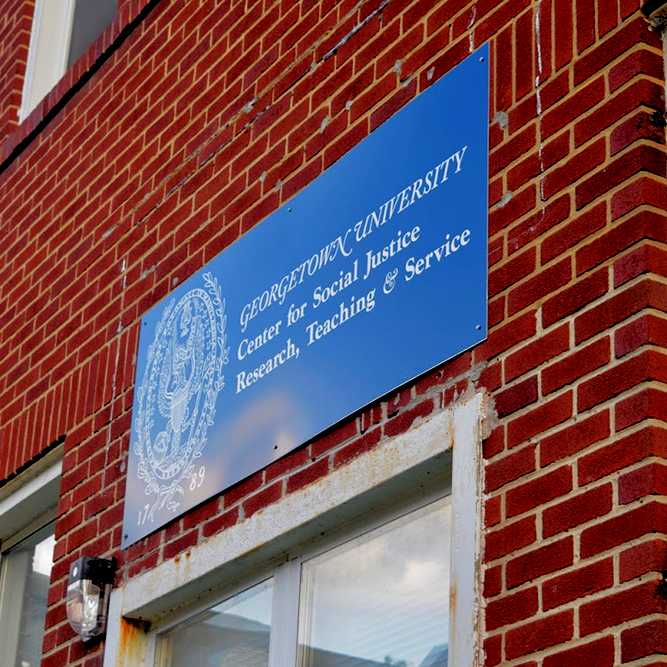Because the Georgetown University Center for Social Justice Research, Teaching and Service moved its Washington, D.C.-area tutoring services online this semester, student tutors worry tutees’ limited ability to access technology impedes their learning.
Programming run by the CSJ gives Georgetown students the opportunity to engage with the broader D.C. community. Services range from Jumpstart and D.C. Reads, programs focused on improving child literacy, to the After School Kids Program, a mentorship initiative that works with at-risk students throughout the District. Though the CSJ has continued its programming, internet access has proved a hurdle in connecting with youth.

The pandemic has highlighted the unequal infrastructure present throughout D.C., especially in Wards 7 and 8, where the CSJ normally provides many of its tutoring services. The District’s rate of positive cases is continuously changing with recent increases, but all D.C. public schools operate via remote learning currently. The District’s virtual learning plan has forced CSJ programs to discover how to keep kids engaged while tutoring over Zoom.
ASK initially entered the virtual world in April, only a few weeks after D.C.-area students were sent home from school.
ASK’s approach to virtual tutoring, which consists of Zoom tutoring sessions to work on homework and build mentor-mentee connections through breakout rooms, has been consistent since last spring. ASK coordinator Brennan George (SFS ’23) said facilitating consistent youth attendance and engagement has been difficult, however.
“Our less engaged students often choose not to come to tutoring, and when they do come, they come for only a portion of the session, and they may choose not to show their faces,” George wrote in an email to The Hoya.
Difficulty developing mentor-mentee relationships and encouraging engagement represent two of the many challenges facing the CSJ. According to George, the CSJ is also evaluating the tutees’ access to technology and resources like quiet study spaces and time.
Madison Barrett (MSB ’22) explained accessibility issues plague many schools that ASK serves because many students do not have access to WiFi or technology in their homes to take classes, let alone participate in outside tutoring.
Barrett called for tutors to be flexible to bridge the digital divide.
“We are able to give tutors a lot more guidance from examples from the past summer and spring which worked and give more resources to our youth so they can connect with us easier,” Barrett wrote in an email to The Hoya.
Working with community partners to tackle accessibility issues has been an essential part of the learning curve for CSJ programs, according to CSJ Deputy Director Raymond Shiu. The CSJ has been working to maintain contact with their connections throughout the District to ensure tutoring programs are able to best respond to the needs of various communities.
The virtual environment has made collaboration with community partners much more difficult, however, specifically when it comes to recruiting new students to tutor.
George explained that, normally, the D.C. Department of Human Services and D.C. Department of Youth Rehabilitation Services help connect new mentees to the ASK program.
“My feeling is that we’ve received much fewer referrals from them than we typically do,” George wrote in an email to The Hoya.




















